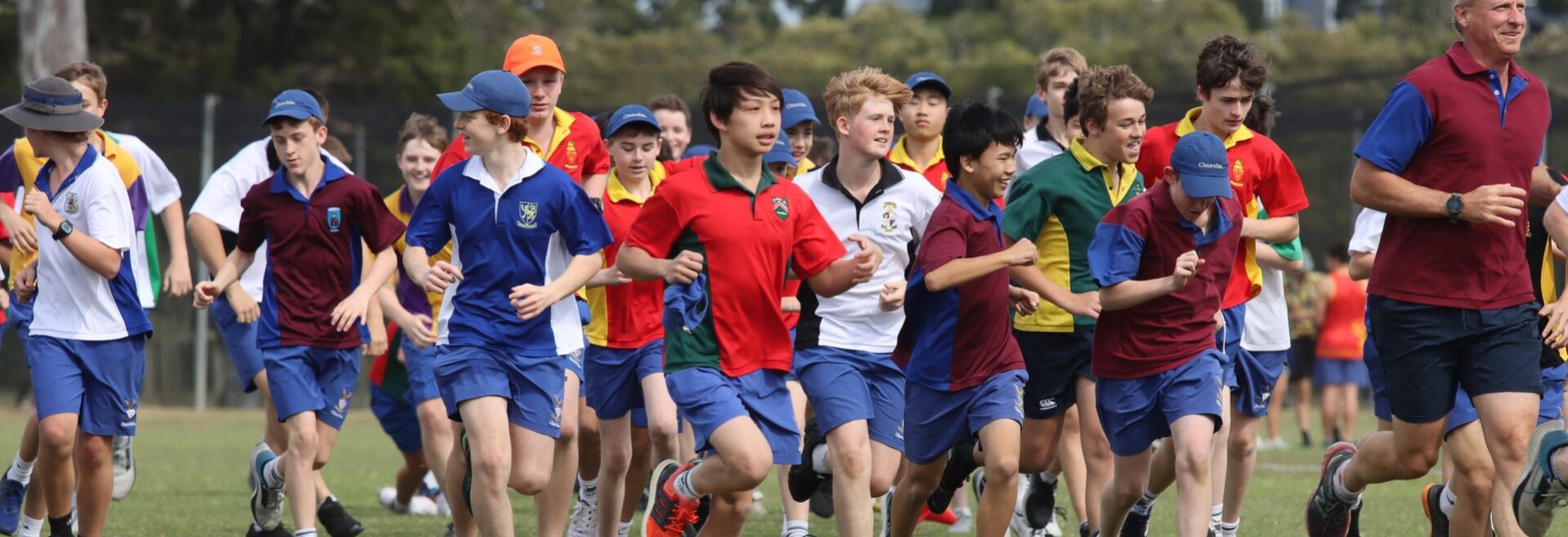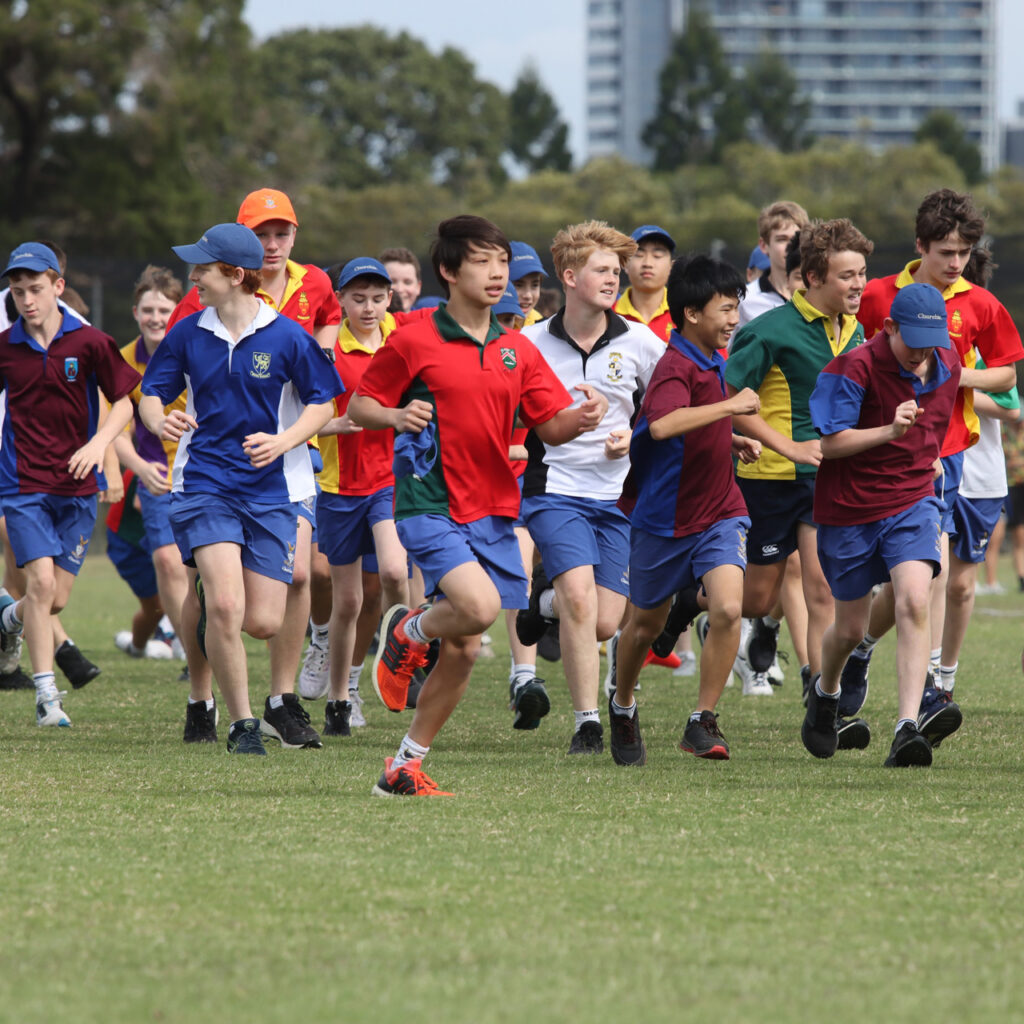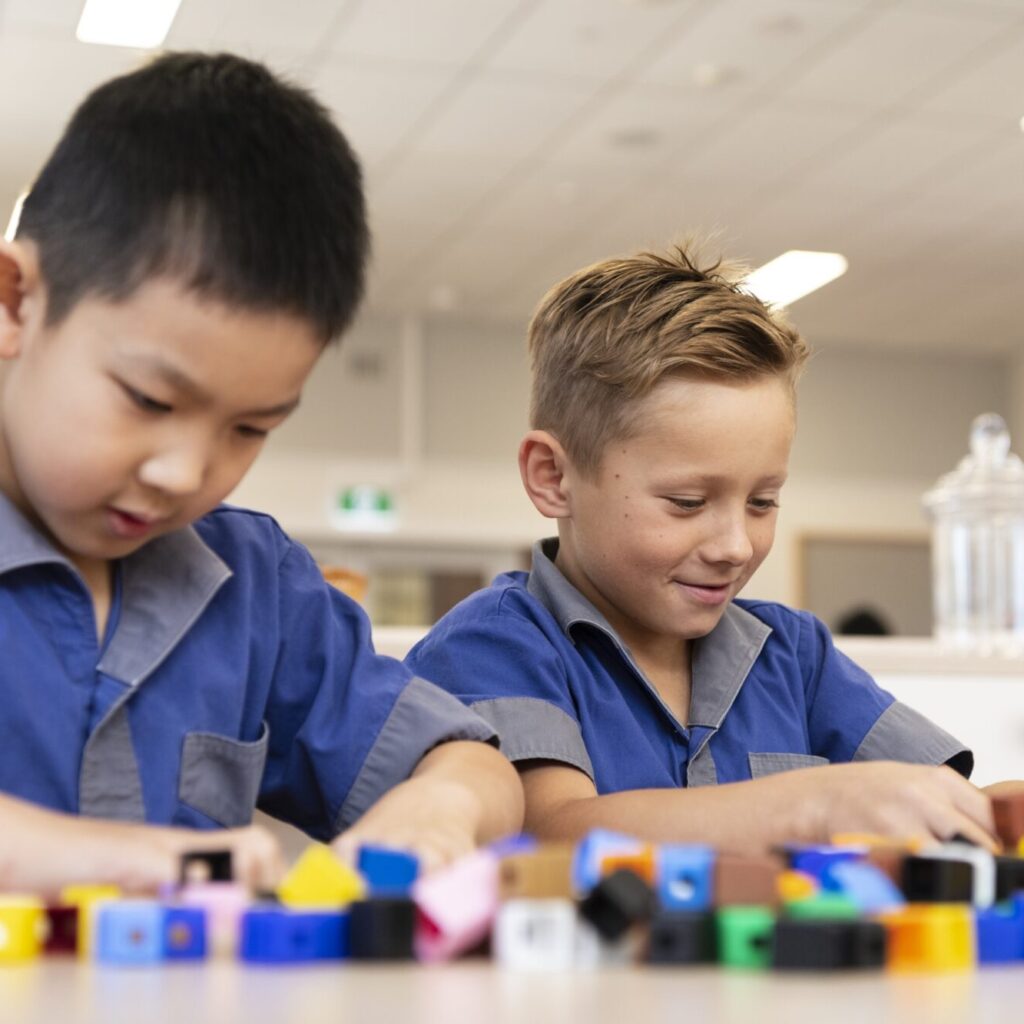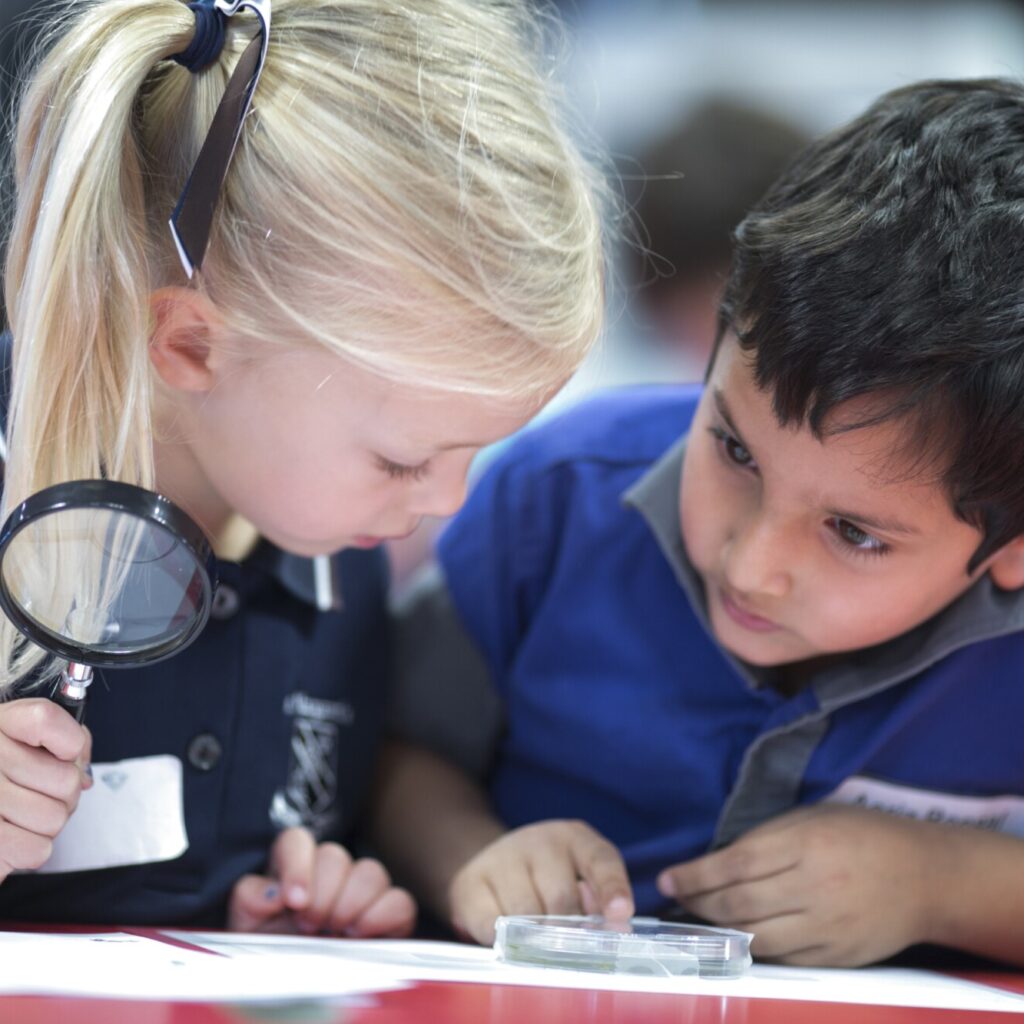A multi-faceted approach
to pastoral care
Pastoral care in the Senior School is centred around Churchie’s time-honoured house system, which creates small multi-age communities of students guided by a network of expert teachers to support and care for boys.
The house system
The house system is fundamental to the pastoral care programme at Churchie. The role of the house incorporates and promotes the pastoral, academic, social, spiritual and emotional growth of the students. Each of the 11 houses in the Senior School is led by a dedicated housemaster who serves as a mentor and role model providing consistency of care for each student in the house from Year 7 to Year 12. The housemaster is supported by six tutor teachers who encourage and advise students on a daily basis within the vertical (multi-year-level) tutor group. Therefore, each tutor teacher also plays an integral part in supporting the overall needs of the students at Churchie. Vibrant inter-house competitions and house activities foster student participation and teamwork. The house system also provides students and families with opportunities to participate in a range of community activities throughout the year.
Each house has its own colours, emblem, history and precinct. The current houses at Churchie are Biggs, Casey, Gerald (boarding), Goodwin (boarding), Grenfell, Hillary, Kingsley, Magnus, Mansfield, Mawson and Nansen. Many Churchie Old Boys fondly retain their house identity and friendships with house peers and housemasters long after they leave the School.
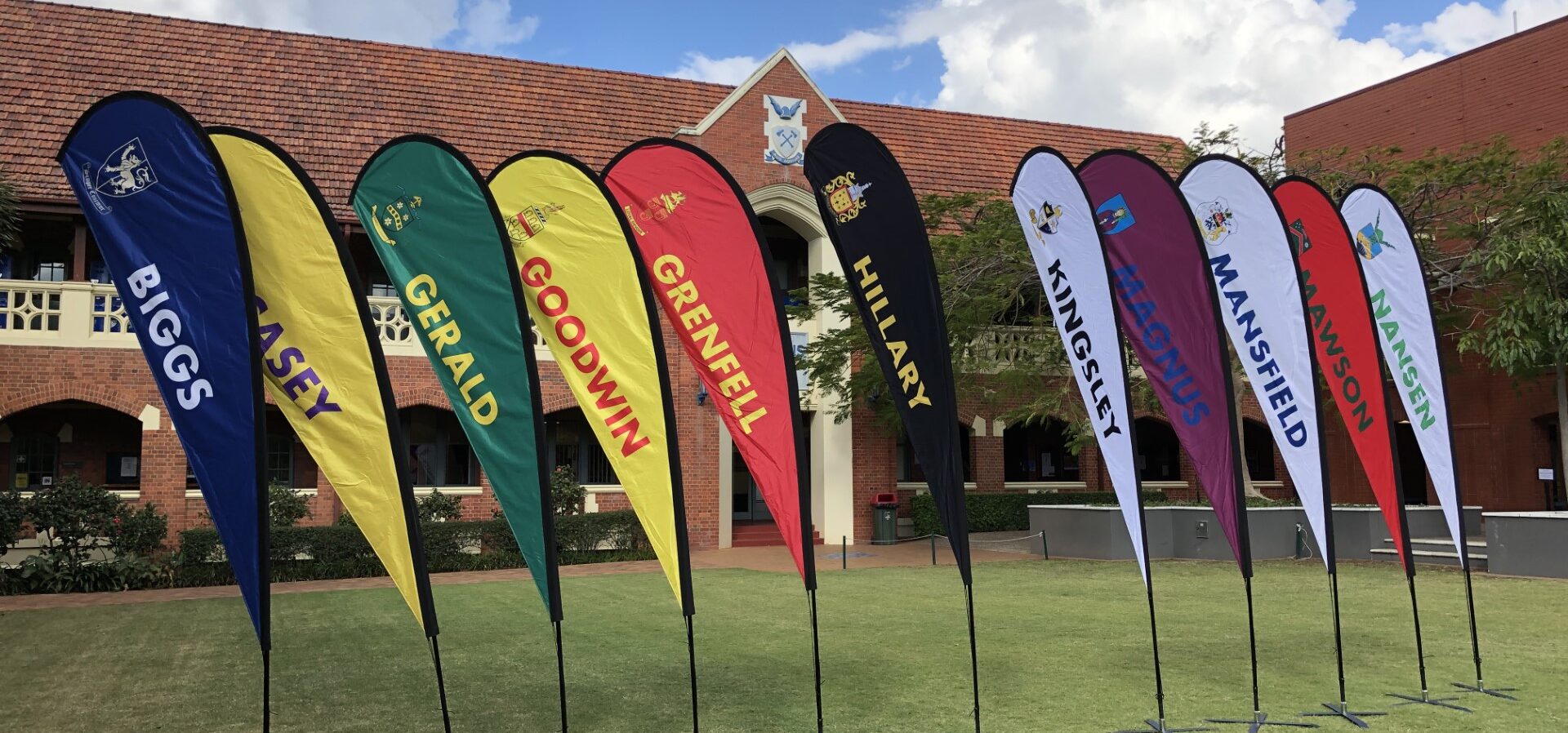
Pastoral care programme
A structured pastoral care programme is delivered by housemasters through timetabled lessons and is supported by tutor teachers in their daily pastoral care sessions. The programme covers an array of topics, issues and discussion points, with an overarching focus on individualised goal setting, resilience and leadership. As the programme is conducted within the house structure, a warm environment is created allowing students to feel safe and communicate openly.
Students are also supported by the School Chaplain, the Career Guidance Officer and the School Psychologist. These professionals offer a range of services including personal, spiritual and emotional support, tertiary study and career guidance, and time-management advice.
The Year 7 transition year
Year 7 supports students transitioning from their primary years to their secondary education.
During this transition, students are placed in a form class with a form teacher who is responsible for their pastoral wellbeing. Year 7 students have many classes in the Fisher building, which is also home to the Head of Year 7.
The rigorous academic programme supports students as they become more autonomous in their learning. Students are encouraged to be complex thinkers, responsive creators, active investigators, effective communicators and enthusiastic participants in a globally connected learning environment. The pastoral principles and practices that underpin our teachers’ delivery of their academic and co-curricular programmes have, as their foundation, the belief that academic success and the capacity to flourish are built on knowing each student well.
Year 7 students undertake Pastoral Learning classes, which explore their responses to situations requiring resilience, responsibility, relationship building and resolve. These developing skills are enhanced via the Outdoor Education programme, where students learn to develop resilience, teamwork and mateship, as well as respect for the environment.
Year 9 Personal Development and Leadership
The Year 9 Personal Development and Leadership programme engages young men in a diverse range of leadership and development experiences, centred around our local community. Each week, boys are engaged with Churchie acclaimed Tri-Service Cadets programme (Army, Navy or Air Force) or in the broad community service programme.
Service activities engage our boys with the community by way of local land restoration projects, visits to aged-care homes, toy manufacture for disadvantaged children and a Scouts division. As cadets, boys learn numerous skills by way of leadership and teamwork, continuing a long-standing tradition of Army, Navy and Air Force participation at Churchie.
The Year 9 Personal Development and Leadership programme is unique to the year level and complements the wide range of cadet and community service experiences that are the hallmark of all stages of a Churchie education.
Through participation in the programme, students earn credits towards the internationally recognised Duke of Edinburgh’s International Award, affording our boys further avenues to develop and practise their leadership skills. Churchie is a leading provider of the Duke of Ed programme and notably was chosen to host a special visit by patron HRH Prince Edward to host a commemorative event in 2014.

